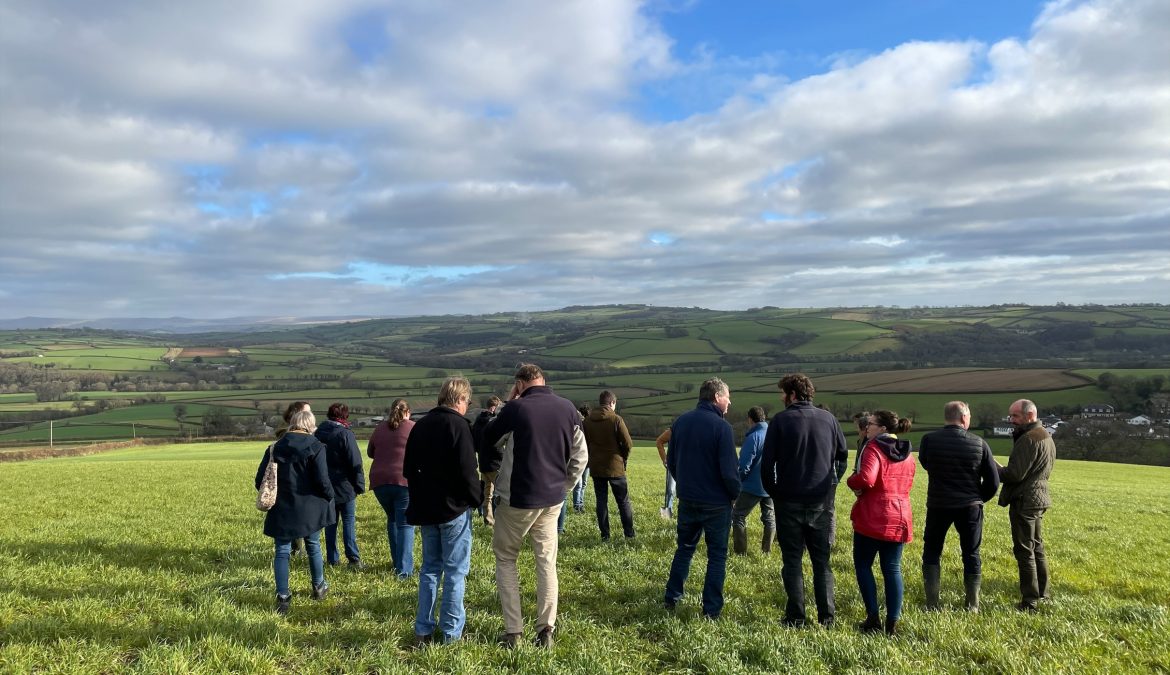
Farm Net Zero is an exciting new partnership between the Rural Business School, Farm Carbon Toolkit, Westcountry Rivers Trust, Soil Association, Innovative Farmers, Innovation for Agriculture and Just Farmers.
It is a £1.2million project funded by the National Lottery Community Fund for five years from January 2021. This new project builds on the work we have been doing through the Agri-Tech Cornwall Soil Carbon Project.
The UK government has set legislation to transition the country to net zero emissions by 2050, with the National Farmer’s Union setting the challenge of net zero emissions agriculture by 2040. Through Farm Net Zero, we will be monitoring 40 farms in East Cornwall with soil sampling and carbon footprinting undertaken each year. The aim is to encourage reductions in carbon emissions and share knowledge between farmers and the wider community.
For further information about the project, please email Alex Bebbington or Stephen Roderick.
Farm Net Zero has a strong focus on the community of farmers working together to learn how to improve their carbon footprints. The video below showcases some of the monitor farmers involved in Farm Net Zero, and the benefits they experience from taking part in community climate action.
Demonstration Farms
There are three Demonstration Farms in Farm Net Zero. These farms will host trials and workshops led by the Farm Carbon Toolkit team, with the aim of reaching Net Zero by 2025.
Blable Farm
Mike, Alison and Sam Roberts run a Stabiliser suckler herd on 500 acres near Wadebridge. They aim to finish more cattle on-farm, with grassland rejuvenated with herbal leys and rotational grazing to reduce inputs. Although most cattle are outwintered, some are housed on greenwaste compost; this is then spread on fields to improve soil organic matter and fertility. The impact of these practices on soil health and the carbon footprint will be monitored throughout Farm Net Zero.
Nutrient analysis of the dirty compost bedding from Blable cattle sheds showed that it held more nutrients than traditional straw-based farmyard manure. A detailed summary of this analysis is available here.
Ennis Barton
Andrew and Claire Brewer farm 1000 acres near Fraddon. The farm has a 500-cow grass-based dairy, with other land rented out for vegetable production. Farm Net Zero activities at Ennis Barton will include monitoring soil health under herbal leys compared to ryegrass-clover and how to sustainably integrate vegetables within the grassland rotation, with the use of cover crops to restore soil health.
Cover crops have already been trialled at Ennis Barton as part of Farm Net Zero, the findings are available here.
Pensipple Farm
Anthony Ellis farms with his parents on a 198-acre mixed arable and livestock farm between Liskeard and Looe in South-East Cornwall. The farm grows barley, wheat and oats, and has a flock of 95 NZ Romney sheep and a 5-megawatt solar panel installation.
Anthony is experimenting with integrating the sheep and arable operations, utilising cover crops and herbal leys within the arable rotation. The sheep are also used to graze winter cereals, reducing the use of chemical fungicides. To further reduce emissions from chemical inputs, Anthony is taking part in a trial using biological fertilisers as a way of boosting crop health.


